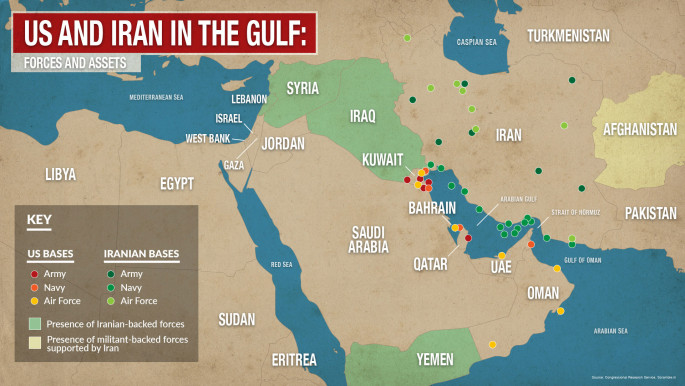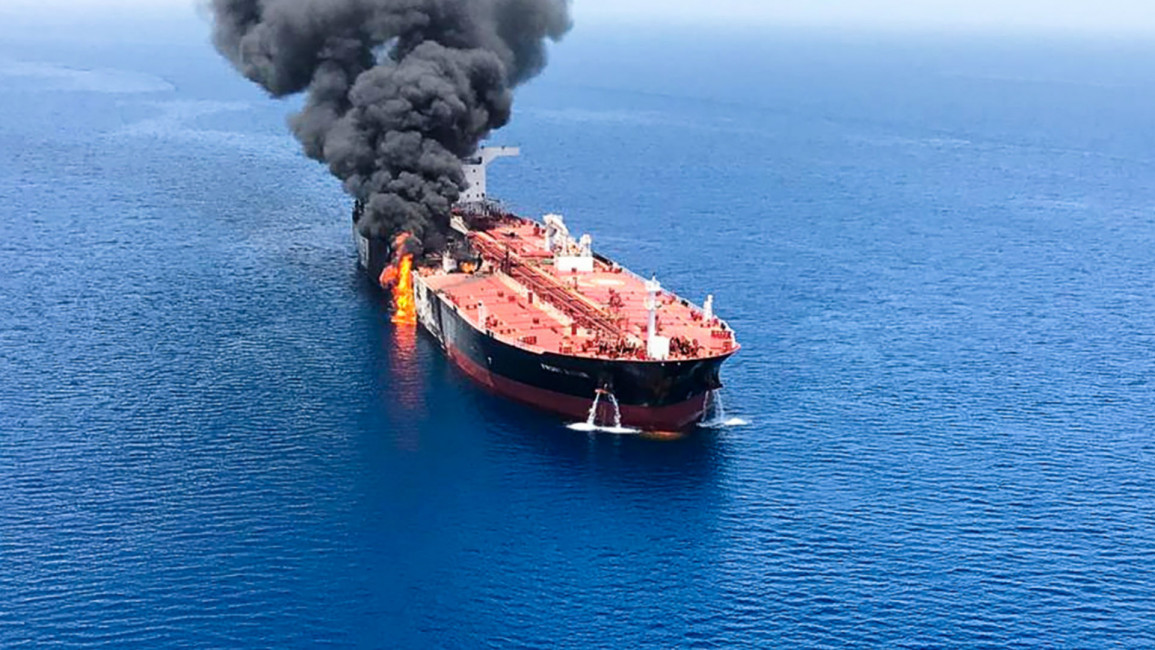Iran summons British envoy over 'false' tanker attacks accusation
"Rob Macaire, Britain's ambassador to Tehran, was summoned to the foreign affairs ministry... following the false remarks made by the British foreign affairs minister," the foreign ministry said in a statement carried by the official IRNA news agency.
British Foreign Secretary Jeremy Hunt a day earlier said London had concluded Iran was "almost certainly" responsible for Thursday's tanker attacks.
Hunt announced that the results of an independent investigation matched a US assessment that Iran was responsible for reported explosions that led to serious damage of two tankers on Thursday.
"I condemn yesterday's attacks on two vessels in the Gulf of Oman. Our own assessment leads us to conclude that responsibility for the attacks almost certainly lies with Iran," Hunt said in a statement released by the foreign office.
"These latest attacks build on a pattern of destabilising Iranian behaviour and pose a serious danger to the region."
The foreign office statement added that it believed Iran's Islamic Revolutionary Guard Corps were behind the 13 June events, saying that no other state or non-state actors could be responsible.
"In targeting civilian shipping, international norms have been violated. It is essential that tankers and crews are able to pass through international waters safely," Hunt added.
"We call on Iran urgently to cease all forms of destabilising activity. The UK remains in close coordination with international partners to find diplomatic solutions to de-escalate tensions."
Video released by Iranian state media showed smoke billowing from two tankers in the Gulf of Oman, with at least one of those on fire.
Iranian naval units rescued the crews of the ships after they made a mayday call following the explosions.
The crew of a Japanese ship reported a "flying object" during the attack.
 |
| [Click to enlarge] |
"The crew members are saying that they were hit by a flying object. They saw it with their own eyes," Yutaka Katada, head of Kokuka Sangyo shipping company, told reporters.
"We have received a report saying that something seems to have flew in, there was an explosion and it created a hole in the body of the ship," he added.
Iran has denied any involvement in the attacks saying US accusations were "baseless", and that its troops witnessed the event and saved the crew.
The US has rounded on Tehran, who it holds responsible with President Donald Trump saying it "Iran written all over it".
"Iran did do it," Trump said in an interview on "Fox and Friends," after the US military released footage it claimed showed an Iranian patrol boat removing an "unexploded limpet mine" from one of the tankers.
"You know they did it because you saw the boat," Trump said. "I guess one of the mines didn't explode and it's probably got essentially Iran written all over it.”
Gulf powers urge response
On Saturday, Saudi Arabia and the UAE called for decisive action to protect energy supplies as the two tankers headed to port.
The United Arab Emirates' Foreign Minister Sheikh Abdullah bin Zayed Al Nahyan called on world powers "to secure international navigation and access to energy", a plea echoed by regional ally Saudi Arabia after the incident sent crude prices soaring.
The UAE's Sheikh Abdullah, whose country is bitterly opposed to Iranian influence in the region, called Saturday for a deescalation of tensions.
"We remain hopeful in attaining a broader framework for cooperation with Iran," he said at a summit in Bulgaria.
Meanwhile, Saudi Arabia's Energy Minister Khalid al-Falih called for a "swift and decisive" response to threats against energy supplies after Thursday's "terrorist acts".
Gulf Cooperation Council secretary general Abdullatif al-Zayani also called the attack a "direct threat" to energy supplies, calling on world powers to protect international shipping lanes and hold the perpetrators accountable.
Follow us on Twitter: @The_NewArab


![The White House Correspondents' dinner is seeing renewed scrutiny amid Israel's war in Gaza. [Brooke Anderson/The New Arab]](/sites/default/files/styles/image_330x185/public/2024-04/IMG_5497.jpg?h=71976bb4&itok=iSygAqbR)